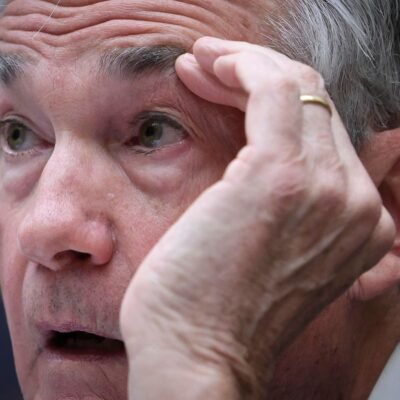Thomas Sowell defined economics as “the study of the allocation of scarce resources.”
Government is economics applied on the collective principle: it serves to allocate scarce resources among conflicting needs. Both government and economics deal with scarcity — there are always more wants and needs than resources to fulfill them.
While economics describes it, government must act within its limits and infallibly acquires inefficiency.
In short: Government will never be 100 percent efficient. Those who insist otherwise don’t show profound observation, just shallow slogans. Perfect efficiency in government is impossible because government itself stands in the way.
Each dollar that is held by a government is subject to numerous valid claims. Is it to be used for a bridge, a hospital, a school, or a water system?
There are no signals from the markets, no profit incentives, no voluntary trades that direct these decisions—only debate, negotiation, and compromise.
Markets efficiently allocate resources because billions of people signal value by trading and purchasing. Governments must consider conflicting values, many of which aren’t expressible in dollars.
Individual government functions can be highly efficient. A road crew can fix a highway at a reasonable cost. A public utility can supply clean water consistently. A clinic can treat thousands efficiently.
But system-wide prioritization — the choice between equally vital ventures — is where inefficiency is built into the system. It’s because government must choose between worthy competing interests that government can never be 100% efficient.
No system of collective human choice can substitute for the emergent order of free markets. That reality doesn’t justify waste or mismanagement.
Government may need to operate like a business in very important ways: keeping track of its finances carefully, imposing accountability, and cutting obvious fraud and waste.
Fiscal responsibility is the only option. Government is not, however, a business. Business looks for profit. Government looks to maximize the greater public interest—a moving, multifaceted target that can’t be reduced to dollars and cents.
Businesses can seek to avoid unprofitable ventures.
Governments can’t. Good government requires that the vulnerable be safeguarded, that the youth be educated, that roads and bridges that will never pay for themselves be built, and occasionally that things of worth that bring no tangible revenues at all be conserved.
Profit is neat and traceable; the public good is not.
Therefore, calls for government to “run like a business” are effective only if they are used to call for better financial management—not to call for a profit-making mentality.
The government requires the disciplines of a business, yet needs to accept that public affairs involve judgment, compromise, and serving interests beyond dollars and cents.
At its best, government balances various needs, imperfectly at times, while always striving for the good of the many. To expect perfection isn’t only naive, but also lazy and unserious.
It excludes the fundamental facts of scarcity, dispersed knowledge, and human intricacy. It confuses slogans for content.
A more intelligent citizenry will recognize that government can always be better, more streamlined, and more accountable, but that it will never be flawless—and wasn’t intended to be. If they don’t get that, then they simply don’t know government.
Island Richards is an elected County Commissioner for Sweetwater County, Wyoming, where he also operates Kelly’s Convenience Centers, a family-owned chain of convenience stores. He lives just outside of Rock Springs with his wife of 34 years.





